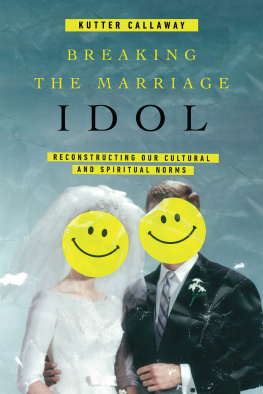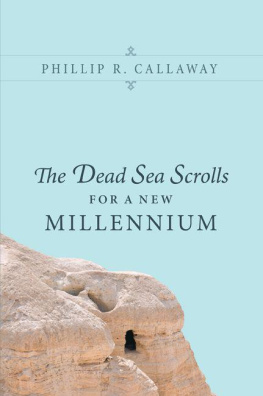Joshua Callaway - The Civil War Letters of Joshua K. Callaway
Here you can read online Joshua Callaway - The Civil War Letters of Joshua K. Callaway full text of the book (entire story) in english for free. Download pdf and epub, get meaning, cover and reviews about this ebook. year: 2014, publisher: University of Georgia Press, genre: Non-fiction / History. Description of the work, (preface) as well as reviews are available. Best literature library LitArk.com created for fans of good reading and offers a wide selection of genres:
Romance novel
Science fiction
Adventure
Detective
Science
History
Home and family
Prose
Art
Politics
Computer
Non-fiction
Religion
Business
Children
Humor
Choose a favorite category and find really read worthwhile books. Enjoy immersion in the world of imagination, feel the emotions of the characters or learn something new for yourself, make an fascinating discovery.

- Book:The Civil War Letters of Joshua K. Callaway
- Author:
- Publisher:University of Georgia Press
- Genre:
- Year:2014
- Rating:4 / 5
- Favourites:Add to favourites
- Your mark:
- 80
- 1
- 2
- 3
- 4
- 5
The Civil War Letters of Joshua K. Callaway: summary, description and annotation
We offer to read an annotation, description, summary or preface (depends on what the author of the book "The Civil War Letters of Joshua K. Callaway" wrote himself). If you haven't found the necessary information about the book — write in the comments, we will try to find it.
The Civil War Letters of Joshua K. Callaway — read online for free the complete book (whole text) full work
Below is the text of the book, divided by pages. System saving the place of the last page read, allows you to conveniently read the book "The Civil War Letters of Joshua K. Callaway" online for free, without having to search again every time where you left off. Put a bookmark, and you can go to the page where you finished reading at any time.
Font size:
Interval:
Bookmark:
The Civil War Letters of Joshua K. Callaway
THE CIVIL WAR LETTERS OF

Edited by Judith Lee Hallock


Paperback edition, 2014
1997 by the University of Georgia Press
Athens, Georgia 30602
www.ugapress.org
All rights reserved
Designed by Sandra Strother Hudson
Set in 10 on 14 Caledonia by G & S Typesetters, Inc.
Printed and bound by Sheridan Books, Inc.
The paper in this book meets the guidelines for
permanence and durability of the Committee on
Production Guidelines for Book Longevity of the
Council on Library Resources.
Most University of Georgia Press titles are
available from popular e-book vendors.
Printed in the United States of America
14 15 16 17 18 P 5 4 3 2 1
The Library of Congress has cataloged the hardcover
edition of this book as follows:
Callaway, Joshua K.
The Civil War letters of Joshua K. Callaway / Judith Lee Hallock, editor.
xviii, 226 p. : maps ; 24 cm.
Includes bibliographical references (p. 213217) and index.
ISBN 0-8203-1886-8 (alk. paper)
1. Callaway, Joshua K.Correspondence. 2. Confederate States of America. Army.
Alabama Infantry Regiment, 28th. 3. SoldiersAlabamaCorrespondence.
4. AlabamaHistoryCivil War, 18611865Personal narratives, Confederate.
5. United StatesHistoryCivil War, 18611865Personal narratives, Confederate.
6. AlabamaBiography. I. Hallock, Judith Lee, 1940. II. Title.
E551.5 28th.c35 1997
973.7461092dc21
[B] 97-1764
Paperback ISBN 978-0-8203-4766-0
British Library Cataloging-in-Publication Data available
Title page: Looking for a Friend, by Walton Taber, Courtesy of
American Heritage Picture Collection
ISBN for digital edition: 978-0-8203-4777-6
To my children,
ERNEST LEE ALBEE
and
DAVID DANIEL HALLOCK,
who fill the family roles that Joshua filled
sons
brothers
husbands
fathers
And in memory of my father,
DANIEL HENRY CORNELIUS HALLOCK
(19101996)
I FEEL remarkably fortunate in having discovered the Joshua K. Callaway letters at the Eugene C. Barker Texas History Center, University of Texas, Austin, when I did. They had only recently been deposited there by his descendants, thus making them accessible to scholars for the first time. I made several visits to the center over a period of years, each time wondering if indeed the letters were as fine as I remembered. Each time I found they were even better than I remembered, and finally I sought permission to publish them.
My quest for permission led me to Joshuas descendants, women and men in whom he would have taken great pride and who are equally proud of their ancestor. Although the collection had been divided into four groups in the care of Doris Kellam Langley and her husband, Ralph, Betty Jo Lyon Jackson, Horace King Lyon, and Thomas C. Douglass Jr., it remained in excellent condition. Each caretaker, appreciating the high quality and the importance of the letters, had taken pains to ensure their safety and preservation. The task of editing the collection for publication has been most delightful and rewarding.
My sons, Ernest Albee and David Hallock, are now about the age Joshua was when he marched off to war. I will be forever grateful that they have not been called upon to make the choices and the sacrifices that Joshua had to make. They, along with their wives, Bella Christ and Annmarie DeStefano Hallock, and my beautiful granddaughters, Jenna Marie Hallock and Kayla Lee Albee, are the joys of my life simply by being there.
In addition to being a joy of my life, Ernest also read and critiqued the manuscript. Being a young man himself, he provided insights into Joshuas thoughts that I had missed. Despite a busy life my sister, Sharon Hallock Boutcher, also critiqued my work. And, as always, Grady McWhiney encouraged and advised me throughout the project and shared my enthusiasm for the collection.
Deborah Fuchs, reference librarian at the Middle Country Public Library, Centereach, New York, helped track down obscure references to nineteenth-century literature.
The Eugene C. Barker Texas History Center carefully copied the entire collection for me, and director Don E. Carleton was patient and supportive as I slowly completed the editing process.
Donald S. Frazier prepared the maps with his usual skill and cheerfulness.
Ingeborg Kelly, Ellen Barcel, Carolyn Kaitz, Annmarie Hallock, E. A. (Bud) Livingston, Marie Hulse, and my mother, Lee Esposito, all helped with the final stages of preparing the book for publication.
A special thank you goes to my closest friend, Ingeborg Linsenbarth Kelly.
ON THE MORNING of November 18, 1863, a young man in the Army of Tennessee persuaded some of his fellow soldiers to accompany him to the top of Lookout Mountain overlooking Chattanooga, Tennessee. Finding the view sublime beyond conception, he imagined the future. [I began] thinking how travelers from all countries will come to stand on Lookout Mountain to see the valley of Chattanooga, and how that the poets and painters of future generations will immortalize the scene and the mountain in song and on canvas, and while I was musing thus I could not help feeling a spark of ambition, a desire to make my name as immortal in future history and as classic as that of Lookout Mountain. As he reached this point in his reverie, he observed a general emerge from a headquarters at the foot of the mountain, a speck so small only his movements betrayed his presence. When I compared him to the mountain and then to the universe, the young man wrote, and thought of his pride and ambition, I could not help smiling at his impetuosity and sighing at his insignificance. He reminded me of an ant trying to shake the earth, and my ambition cooled off and I would be perfectly content to be at home with my wife and never be thought of after I die.
The young man whose ambition so briefly flared was Joshua K. Callaway, a volunteer in Company K, Twenty-eighth Alabama Regiment. He had been soldiering for nineteen months at the time he wrote this letter and would continue to do so for only another six days.
Joshua was born on September 2, 1834, one of thousands of children born that year whose lives would be shaped by the most cataclysmic event in American history, the Civil War. His parents, Reverend Joseph (born in 1800) and Temperance (born in 1805) Callaway, were both natives of Georgia. They produced five children. Elisha W, the firstborn, arrived in 1828. Four years later Sarah A. Damaris (1832) made her appearance, followed at yearly intervals by Camilla (1833) and Joshua (1834). After a six-year respite
At age fifteen, Joshua worked as a mail carrier, but there is no record of where or when he received his schooling. The letters he wrote, however, reveal him as comparatively well educated. About the time his parents died, Joshua married Dulcinea Baker. The Baker family of eleven had been living in Coffee County since at least 1846, where the father, John Baker, died sometime before 1850. In the late 1850s his widow, Amelia (Millie) Regan Baker, bought land in Summerfield, Dallas County, Alabama, at a sheriffs sale and moved there with her large householdthree of her seven sons, both daughters, and son-in-law Joshua.
Next pageFont size:
Interval:
Bookmark:
Similar books «The Civil War Letters of Joshua K. Callaway»
Look at similar books to The Civil War Letters of Joshua K. Callaway. We have selected literature similar in name and meaning in the hope of providing readers with more options to find new, interesting, not yet read works.
Discussion, reviews of the book The Civil War Letters of Joshua K. Callaway and just readers' own opinions. Leave your comments, write what you think about the work, its meaning or the main characters. Specify what exactly you liked and what you didn't like, and why you think so.

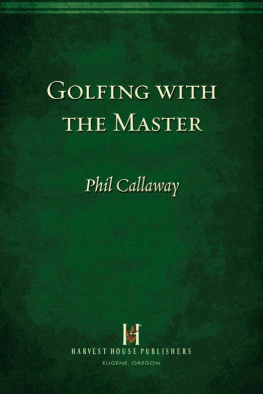

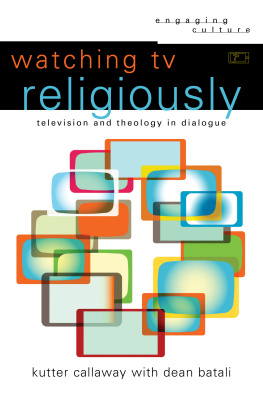

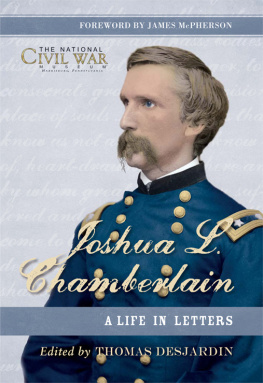
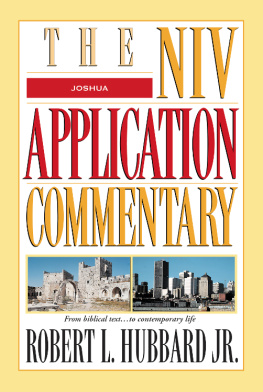
![Joshua Backfield [Joshua Backfield] - Becoming Functional](/uploads/posts/book/120483/thumbs/joshua-backfield-joshua-backfield-becoming.jpg)
